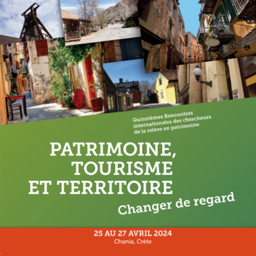Science, a heritage resource for (re)thinking mountain tourism?
My Session Status
Based on a study of scientific tourism practices in the French mountains, this paper aims to examine the ways in which science contributes to the rediscovery of these areas for tourism in the current context of global change (environmental, societal, mobility, etc.).
Scientific tourism is defined as a tourist niche in which science plays a central role. Practices can be very varied, ranging from the mobility of scientists in the course of their work (research fields, symposia, delegations…) to forms aimed at a broad public through the implementation of adapted mediations (interpretation trails, guided tours, participatory science…).
Taking an interest in these practices is therefore an occasion to understand how science contributes to territorial networks. It is indeed an opportunity to analyze how scientists organize themselves to produce knowledge. It is also a chance to observe how this knowledge is appropriated by territories and their stakeholders, in order to promote heritage and tourism.
Numerous infrastructures and institutions already exist (museums, centres of scientific, technical and industrial culture, foundations, botanical gardens, etc.) and bear witness to the patrimonialization of scientific knowledge and, in some cases, to its tourism. At this stage, scientific knowledge is clearly seen as a resource (at the very least, a heritage resource) for territories. It is interesting to ask how it can enable tourists to (re)discover mountains where tourism is often concentrated around ski resorts, and how current changes are taken into account.
Moreover, while the production and sharing of knowledge is a central and essential part of scientific activity, science cannot be reduced to knowledge. Indeed, this notion also encompasses other characteristics such as actors, methodology, mobilities…
This raises the question of whether knowledge alone is a resource in science. More generally, this raises the question of what science represents in its entirety for a territory. We need to ask ourselves whether, rather than the notion of resource, it might not be that of goods that should be mobilized to respond to it.

Discussion